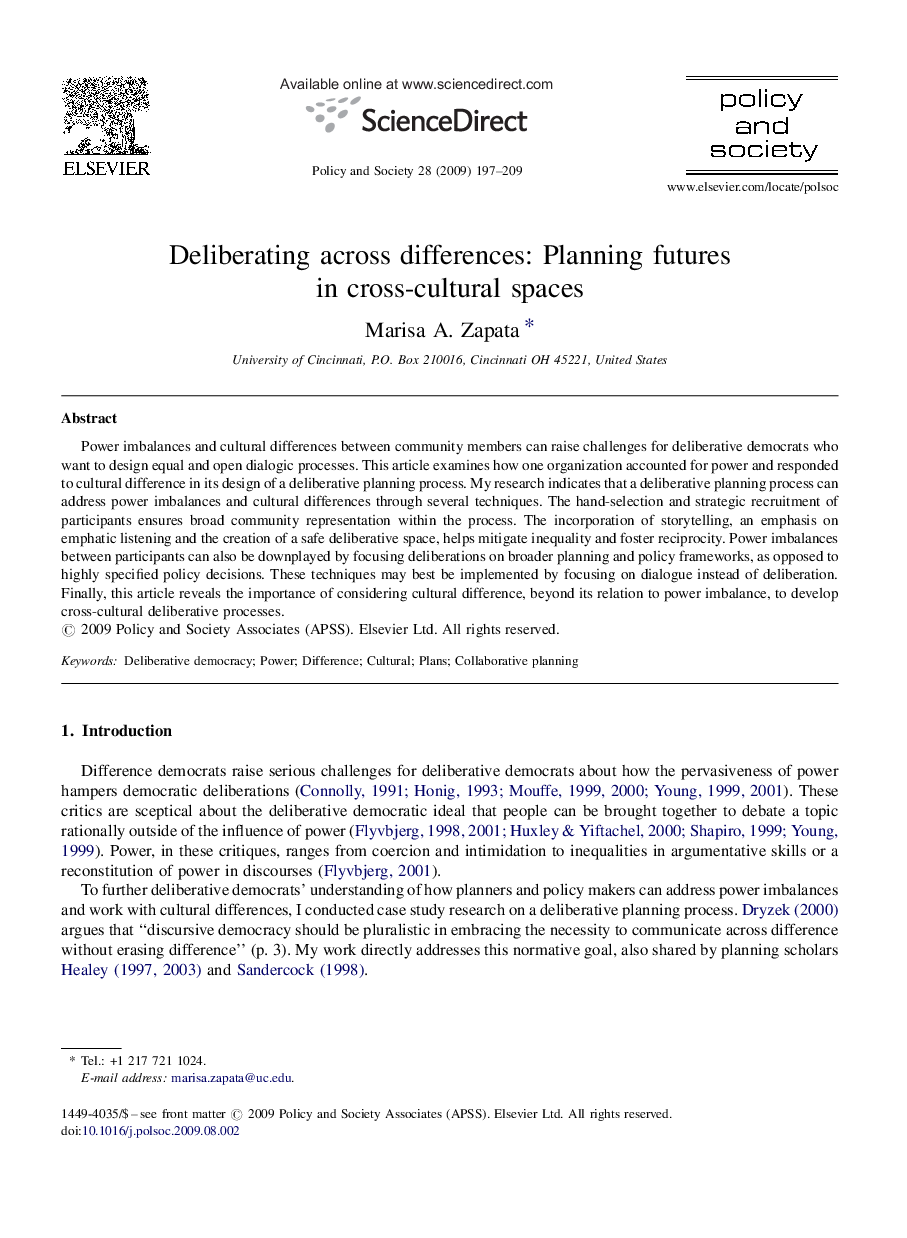| Article ID | Journal | Published Year | Pages | File Type |
|---|---|---|---|---|
| 1061740 | Policy and Society | 2009 | 13 Pages |
Power imbalances and cultural differences between community members can raise challenges for deliberative democrats who want to design equal and open dialogic processes. This article examines how one organization accounted for power and responded to cultural difference in its design of a deliberative planning process. My research indicates that a deliberative planning process can address power imbalances and cultural differences through several techniques. The hand-selection and strategic recruitment of participants ensures broad community representation within the process. The incorporation of storytelling, an emphasis on emphatic listening and the creation of a safe deliberative space, helps mitigate inequality and foster reciprocity. Power imbalances between participants can also be downplayed by focusing deliberations on broader planning and policy frameworks, as opposed to highly specified policy decisions. These techniques may best be implemented by focusing on dialogue instead of deliberation. Finally, this article reveals the importance of considering cultural difference, beyond its relation to power imbalance, to develop cross-cultural deliberative processes.
